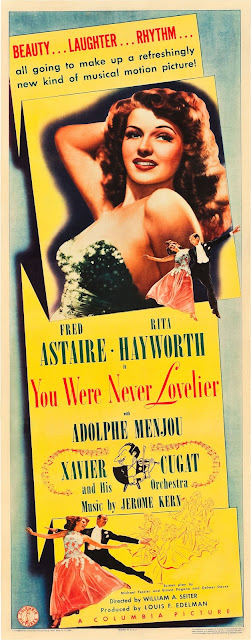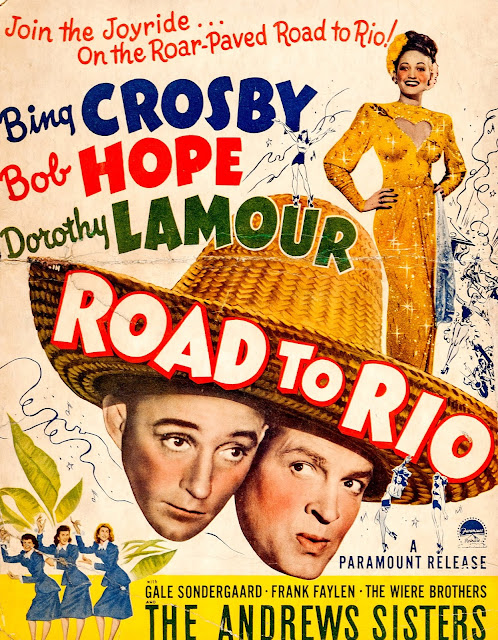A Tribute to the Peerless Ms. Doris Day
“I love to laugh. It’s the only way to live. Enjoy each day — it’s not coming back again!”
Doris Day
May 13, 2019 became the day I had been dreading for years when, after 97 years of sharing her impossibly bright light with the world, Doris Day passed away. All I wanted to do that Monday was read any and every piece dedicated to her, a practice that only reaffirmed something I already knew: after some 600 recordings, 39 films, and one TV show, people still struggle to understand her legacy. Words like “wholesome,” “chaste,” and “virginal” were used over and over, as if they were the only adjectives that could possibly make sense when describing Day. I’ll admit I bought into this when I first discovered her. Her name had become synonymous with this idea of “the eternal virgin,” an insulting mismatch that has never gone away.
But the more I saw of her, the more confused I felt. This was, to borrow her own phrase, Miss Chastity Belt? This confident, ambitious, take-charge woman, with her throaty laugh and sparkling eyes? As I fell in love with Day’s work, it became obvious that somewhere along the way, her sunny personality and strong sense of integrity somehow got translated into a persona that didn’t truly exist. The motivations of her characters were twisted to fit this narrative — instead of the independent careerwoman, she would be the girl who was afraid of sex. For women, the policing of our sexuality is a concept we know well; for Day, it’s a concept that seemed to erase any feminist agenda her characters suggested.
In her earlier films, the actress played vivacious young women with a ceaselessly optimistic, effervescent spirit. Whether she was trying to put on a Broadway show (Lucky Me, Lullaby of Broadway, Tea for Two), become a movie star (It’s a Great Feeling), or play baseball and fix her boyfriend’s car (On Moonlight Bay, By the Light of the Silvery Moon), Day’s characters were all about chasing after what you wanted and excelling with grace and humor. After her contract at Warner Bros. was over, Day transitioned into more serious fare, where she was terrorized by cruel husbands and survived through sheer resilience. In one of these films, Julie (1956) co-starring an unnerving Louis Jourdan, the climax finds Day’s character, an airline stewardess, forced to land a plane after the pilot is killed during a harrowing confrontation with Jourdan. It’s admittedly an outrageous situation, but the image of Day accomplishing such an immense task after enduring so much trauma is still a powerful one.
Day possessed dramatic abilities that tapped into a shattering vulnerability. Often cited as the film that should have won her an Oscar, Love Me or Leave Me (1955) is a stunning example of the emotional depths that she could reach. However, long before I saw Day’s bruised Ruth Etting, I met Jo McKenna, her tormented mother from Alfred Hitchcock’s The Man Who Knew Too Much (1956). There have only been a handful of film scenes that have ever really haunted me, and Jo’s breakdown upon learning that her son has been abducted is one of them. Choking on her tears and trying to fight the sleeping pills her husband (Jimmy Stewart) has given her, Day is so devastating that we feel as though our own hearts have been ripped out of our chests.
As the 1950s gave way to the ’60s, Day became the queen of the romantic comedy and her stardom hit new highs. Perfectly described as “the Fred Astaire of comedy” by two-time co-star James Garner, Day was the epitome of stylish elegance, but she was also a hilarious clown. Equally at home executing a pratfall and trading barbs with her love interest, she had a delightful silliness, one that she made sure never reduced her characters to caricatures. In addition to her comedic prowess, Day brought an intelligence and a sexiness to her rom-com women that proved irresistible to audiences and leading men alike. Her characters demanded respect from everyone, especially the men who wanted to sleep with her, and she strove to be seen as an equal in all aspects of life.
Although rom-coms were Day’s bread and butter during the last decade of her film career, her singing talents were still very much at the forefront. She often recorded her movies’ theme songs and would even be given simplified numbers to do within the films, like in The Glass Bottom Boat (1966), Pillow Talk (1959), and Please Don’t Eat the Daisies (1960). She also headlined two charming musicals, Billy Rose’s Jumbo (1962) and The Pajama Game (1957), the latter being one of the best, and most underrated, films she ever made.
While a terrific actress and dancer (seriously, go watch any of her impressive numbers with Gene Nelson), what really allowed Day to shine in musicals was her captivating voice. Like her idol Ella Fitzgerald, who she studied when she began singing, Day had a voice that soared with honeyed clarity, suggesting total control over her instrument. However, also like Fitzgerald, she could combine that piercing quality with a slight vibrato that implied the great emotion trembling beneath the surface. When you listen to one of her upbeat songs, you can actually hear that Day was smiling while singing, just like you can hear the sobs in her throat when she’s crooning a ballad.
For film and music lovers, the loss of Doris Day is overwhelming. For me, the loss is honestly heartbreaking. She brought so much love and happiness into my life with her spellbinding voice and comfort food-like films. Her characters illustrated the frustrations and the pleasures of being a woman as they subverted sexist expectations and achieved their deepest desires, all while wearing chic Jean-Louis gowns and winking to the audience. Day’s friendship with Rock Hudson, particularly when he was dying of AIDS, was an example of pure devotion and compassion, just like her beloved work with animals. She was a reminder of all the good in the world, a true beacon of hope and kindness. In short, I adored her with every fiber of my being.
You are going to be so missed, Doris.
___________________
This piece was originally published on May 15 on A Place for Film, IU Cinema's blog.
















Your heartfelt tribute to Doris Day moved me.
ReplyDeleteThank you, Paddy. She was really something special.
DeleteI remember I first saw a DORIS DAY movie in 1983. It was THAT TOUCH OF MINK with CARY GRANT. It was also the first movie that I saw Cary in. I quickly became a fan of Doris. Besides ROCK HUDSON. who are some of your favorite leading men of hers? I like ROD TAYLOR, CLARK GABLE, GORDON MACRAE. JAMES GARNER & RICHARD WIDMARK. (That's just off the top of my head.) In one book the author said the one with her and WIDMARK was in bad taste! The title was TUNNEL OF LOVE that also had the delightful GIG YOUNG. Gig was also in TEACHERS PET which had GABLE and MINK which had GRANT.
ReplyDeleteI just saw That Touch of Mink for the first time a few nights ago. I liked it a lot!
DeleteMy favorite leading men of Day's are similar to yours: Rock, Rod Taylor, James Garner, Clark Gable, Gordon MacRae... I also enjoy her with Gene Nelson and Jack Lemmon. Really, she had very few leading men that I didn't like!
I don't know if I ever will deeply recover from this loss. She was just terrific. I've said this before and I'll always say it...she makes my heart smile. Thanks for commiserating with all of us classic film fans.
ReplyDeleteI know I still haven't recovered. Although we fans knew her passing was inevitable, I think a part of us hoped she'd live forever. I always felt so honored that I was able to appreciate and love her while she was still with us, unlike so many of my other favorites. It's truly a huge loss.
Delete